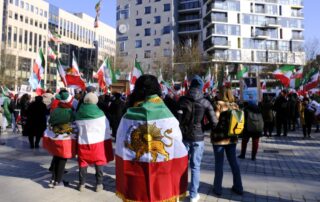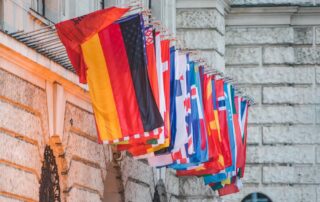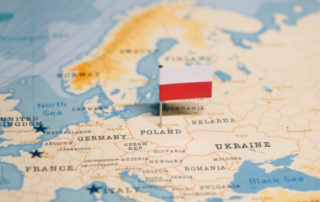
The recent terrorist attacks carried out by Hamas in Israel have raised concerns globally about terrorist financing and money laundering. Given the subsequent conflict, regulators will undoubtedly look more closely at the financing of Hamas and other terrorist organizations in the region, such as Hezbollah. Hamas is a designated terrorist foreign terrorist organization by the U.S. Department of State.
Accordingly, firms need to examine their potential risk exposure. You do not want to help facilitate terrorist financing unknowingly.
Although terrorist financing mostly occurs in the shadows, it can also hide in plain sight.
Terrorist organizations use a variety of tactics to move capital, including:
Governments around the world have sought to combat the financing of terrorist activity in a variety of ways with a focus on increased regulation and enforcement. International sanctions regimes have also aimed at curbing the financing of terrorism.
Despite these efforts, individual companies must understand the risks and their role in thwarting terrorist financing and money laundering. Failing to implement the proper controls and due diligence techniques can lead to inadvertently facilitating terrorist financing, which can bring on a tremendous amount of liability and reputational risk.
Hamas’s global financial network displays the importance of vigilance against terrorist financing and money laundering, even in areas that are far displaced from the region, including the United States.
Hamas raises funds in a variety of ways, including taxation of imports into Gaza, individual investment portfolios of top leaders, and diverse investment portfolios for the organization itself, which is estimated to be worth between $500 million and $1 billion USD with significant assets in Turkey, Sudan, Saudi Arabia, Algeria, and the United Arab Emirates among others. Hamas is also known to receive monetary and material support from Iran, which some estimate to be worth over $150 million per year.
Hamas additionally has an extensive global fundraising and political advocacy network that includes the United States. Hamas’s network in the United States dates back to 1988 with the formation of the Palestine Committee. Since then, the Palestine Committee has been divided into several organizations responsible for political advocacy, propaganda, and fundraising campaigns.
The FBI has levied numerous investigations against pro-Hamas campaigns in the United States, which have led to the prosecution and deportation of Hamas operatives. Nevertheless, Hamas’s network in the United States remains intact, posing risks to financial institutions and firms providing financial services.
As the issue of the Hamas-Israel war becomes more polarizing in the United States and throughout the Western world, firms must maintain strict due diligence and compliance processes to avoid any negative implications stemming from enabling terrorist financing of Hamas and other like-minded groups. Due diligence investigations on third party suppliers will help to minimize inadvertently engaging with terrorist financing activities.
The US Department of Treasury Financial Crimes Enforcement Network (FinCEN) has recently issued an alert regarding Hamas, which can be found here.
After the recent October 7 Hamas attack in Israel, the US has announced multiple investigations into supporters of the group in the US. Additionally, because Hamas enjoys support across multiple countries otherwise removed from the direct Hamas-Israel conflict, the risks posed to financial institutions globally are severe.
Terrorist financing and money laundering are global problems but pose higher risks to firms operating in or near areas with continued political and social unrest, combat areas and their neighboring regions, countries with increased rates of terrorist and extremist activity, and countries with weak financial and regulatory institutions. This includes countries where the terrorist group may not be attacking, but where it enjoys levels of support among the population.
In addition, the following industries have higher risk exposures to money laundering and terrorist financing:
Several international banks and financial institutions have been implicated in empowering significant money laundering and terrorist financing in recent years, highlighting the growing importance of customer due diligence and stringent AML/CFT controls and compliance.
In 2015, Kuveyt Bank from Turkey was sued by the family of a teenager slain by HAMAS for allegedly providing financial services to entities tied to HAMAS. Though these claims were never settled in court because the plaintiff accepted a settlement offer, this case shows the reputational and financial implications associated with terrorist financing.
Likewise, in 2012, US authorities alleged HSBC’s involvement in money laundering for drug cartels in Colombia and Mexico and terrorist organizations linked to Iran led to the bank paying over $1.9 billion USD in fines. The Bank’s performance fell drastically in the following years due to customer, investor, and legal backlash, leading to plummeting stock prices and lasting reputational damage.
Kuveyt Bank and HSBC are just two examples of financial institutions implicated in money laundering and terrorist financing schemes, which have faced international backlash from investors, customers, and lawmakers. They show the growing importance of stringent customer due diligence and the need for robust AML/CFT controls and compliance. Establishing these is important to ensure corporate ethics are instilled in one’s company and to avoid catastrophic consequences from enabling criminal activity.
It is much better to be solving risks before they start™.
Successfully combating money laundering and terrorist financing begins with creating robust due diligence and compliance frameworks.
US businesses can do this by establishing regular assessments regarding vulnerabilities related to customers and suppliers, conducting customer due diligence investigations, and assessing risks associated with the geographic location of business operations.
Businesses can also invest in monitoring systems that flag risky or abnormal customer transactions and have clear protocols for handling suspicious activities. Corporations should be up to date with current AML/CFT programs and be aware of sanctioned individuals, companies, and states. Cooperation and relationships with law enforcement agencies regarding AML/CFT programs and concerns can also help keep your company ahead of potential risks.



